Dvojí život / Double life
The talented violinist Julie hates her itchy dresses and Soviet compositions she has to play because of her father who is a communist dignitary. It is the 2nd half of 1970s and Julie loves jeans and rock music – as well as Roman the guitarist. Roman invites her to sing in his underground band and Julie starts to unravel the lie occurring at her home and in public. On the verge of her adulthood, she uncovers the betrayal of those closest to her and has to decide whether she will continue to live the double life. How much is she willing to sacrifice for her personal freedom, for love and the truth?
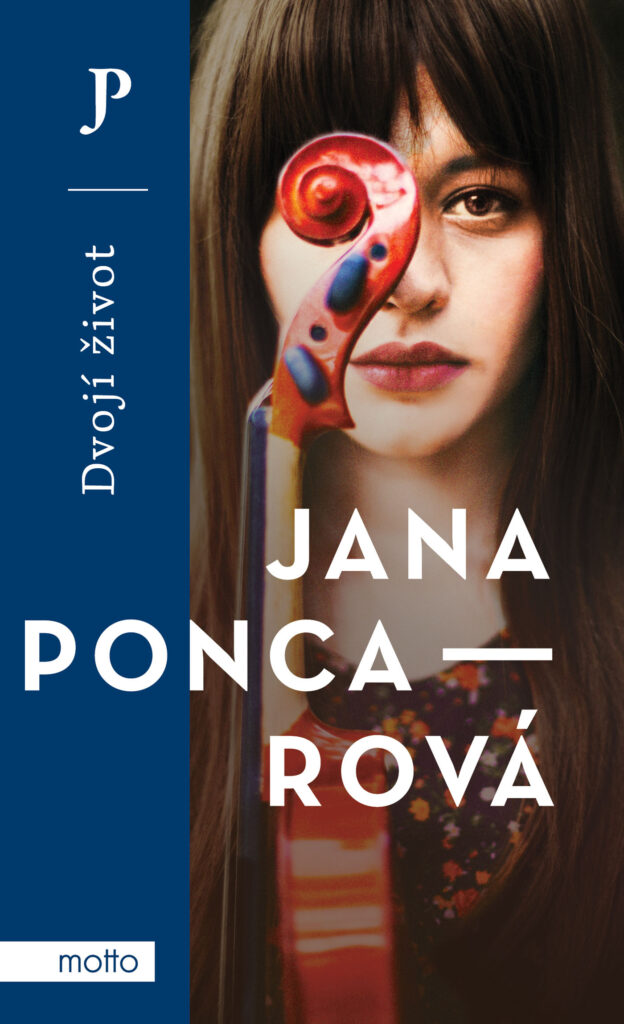
Nultá hodina / Zero Hour
The sixth novel by Jana Poncarová. Hedvika Adlerová returns to the post-war Czechoslovakia after seven years spent in London and in the military service in Africa. As a driver of the Women’s Army Auxilliary Corps, she drove across the desert, from Haifa to Cairo. Her parents perished in a concentration camp, the Soviets took up residence in the family villa in Prague, and Hedvika was only left with a summer house near Pilsen. She tries to rebuild her former life from the rubble, yet gradually discovers that the pieces are missing and nothing is the same. The horrors of war and years of separation have alienated her and her husband – and another man had stepped into her path. Hedvika starts working at the British Embassy in Prague and befriends the writer Marcia Davenport, a close friend of Jan Masaryk. Meanwhile, she watches helplessly as the ideals that made her join the military service are brutally suppressed and one totalitarianism in her homeland is replaced by another. Will she manage to emerge from the restless void of the zero hour?
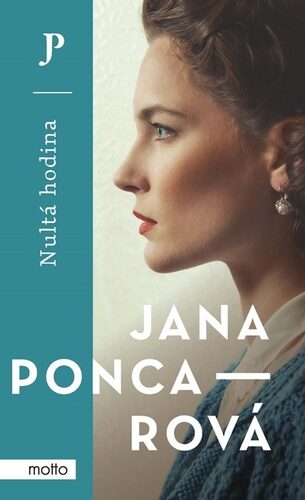
Herečka / The Actress
World War I came to an end and the spirit of the wild 1920s took hold of all the free-minded artists. The actress Jarmila Horáková was one of them. Outwardly, she appeared confident, yet inside she hid her insecurities she shared with her diary. With first loves comes a dilemma – can one marry and devote oneself fully to the theatre at the same time? But a serious illness interrupted her dazzling career at the very beginning.
Two decades later, the actress and writer Olga discovers Jarmila’s story through the diary. During the Protectorate, her extraordinary fate becomes not only an inspiration but also a bridge to freedom that leads far beyond the grim reality.

Novel based on a true story of Czech actress Jarmila Horakova who played in 20s. Published in 2022. Read more.
Cyklistka / The Cyclist
Blanka, the last member of the aristocratic Battaglia family, lives in a crumbling castle in Bratronice, South Bohemia. The lonely old baroness does not have the strength to look after the building and grounds that have belonged to her family for generations, so she just silently watches the slow decay and destruction. She is aware of the fact that she is the last one and has little time left. An unexpected visitor snaps her out of her lethargy – Klára, a student of journalism, arrives in Bratronice to write an article about the baroness. The interviews with Klára make Blanka reminisce about the past, about her long and colourful life – and about the love of her life, of whom only a never-read letter remains.

Novel based on a true story of Czech female cyclist Blanka Battaglia. Published in 2021. Read more.
Alžběta a Nina / Elisabeth and Nina
The shadows of the past hide in the gloomy and beautiful Sudetenland which divided Elisabeth’s family for decades. When her granddaughter Nina visits her in the hospital where she is recovering from a broken femural neck, she thinks of a way to make her grandmother happy: she takes a trip with her to the places where she spent her childhood and youth. A lot is left unsaid between the two women, but during the journey through the forgotten places and hidden memories, Nina decides it is time to move beyond silence. She can only make her own dreams come true if she uncovers her family secrets.

Novel. Published in 2020. Read more.
Eugenie
When we lock our feelings in our hearts, sooner or later, the fate will shake our lives to make us take a breath again. The novel is inspired by the real life of Eugenie Egertová Janečková and the Continental Hotel in Pilsen which used to be a meeting point for the socialities of the time period between the two wars. Like most women at the time, Eugenia is about to have her marriage arranged. The stunning brunette marries the hotel owner Ledecký and locks her true feelings in her heart. Together, they run the hotel through which the history passes. On the eve of the German occupation, Marlene Dietrich spends the night there, and later both the Gestapo and the resistance fighters come here for coffee. At the end of the war, a bomb flies through the hotel, killing both Eugenie’s husband and father in the shelter. The liberation by the American Army brings new hope to the life of the young hotelier’s life – as well as love which puts her before a fateful decision.
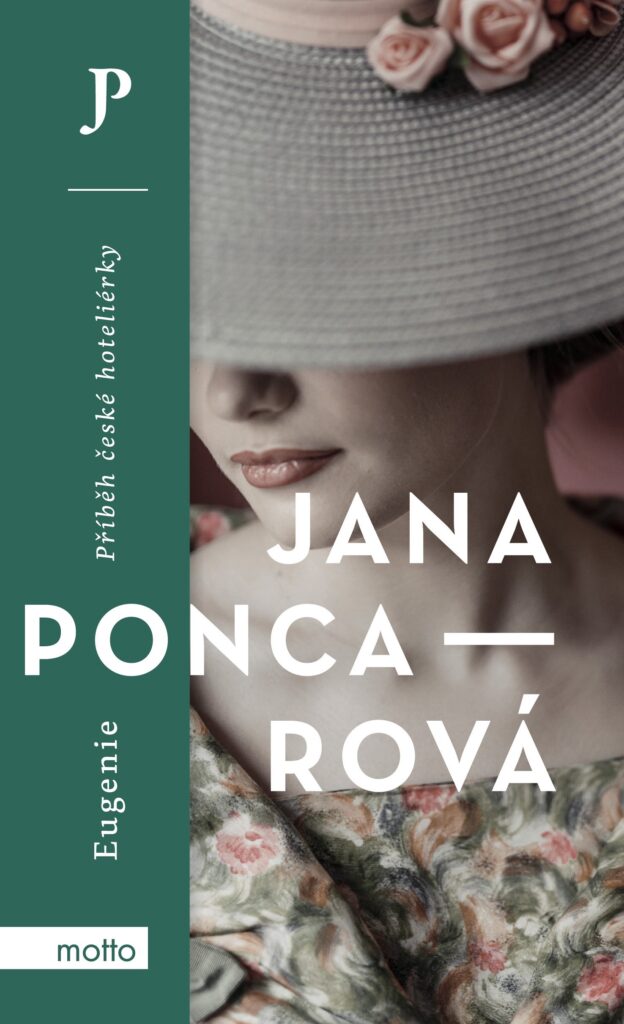
A novel based on a true story set before and during the Second World War. Published in 2019.
Eugenie has everything most women dream of – a kind husband, a luxurious hotel and two children. Yet, she doesn’t have anything that she herself has always desired – her freedom and to see America. The Second World War brings liberation and true love into Eugenie’s life, while also presenting her with a life-changing decision.
The dark-haired girl with deep brown eyes and a melancholic smile grows up in a well-situated family. When her father, ambitious restaurateur Arnost Egert, meets the new owner of the Hotel Continental in Pilsen, the fate of the young woman is sealed. As an obedient daughter, Eugenie agrees to marry hotelier Emanuel Ledecky. Her arranged marriage is loveless. She helps run the hotel, gives birth to two children, deals with the everyday routine and experiences the struggles of war. In 1944, during a heavy bombing, she loses her husband, father and mother. She is alone with two small children and a hotel that needs reconstruction. She finally proves her strength, determination and intelligence. When the American army liberates the city in May 1945, it brings not only a freedom but also love into her life. Eugenie meets general John Hinds who finds something beautiful in the young widow. After a few weeks, a young diplomat appears, and Eugenia has to make the decision of her life.
Reviews
“The great Hollywood film “Casablanca” came to mind after reading Jana Poncarova’s brilliant true-story romance, Eugenie. For the Czechs, the war stretched nearly seven years, the first country stolen and the last liberated. The beautiful Eugenie was widowed in a Pilsen air raid just months prior to war’s end, leaving her alone to run the city’s most sumptuous inn, the Hotel Continental. Pilsen’s glorious liberation brought more than freedom to Eugenie’s world when the dashing American General Hinds arrived to make headquarters in her hotel. With the General free of the hell of combat and Eugenie finally free of Nazi occupation, their love seems nearly preordained. Author Jana Poncarova is from Pilsen, and her tender storytelling is infused with a lifetime of walking Pilsen’s cobblestones and marveling at its buildings, none more beautiful than the Hotel Continental. Eugenie’s subtle and refined charm contrasts with the General’s rugged sex appeal, making this story so Hollywood-ready. Opposites attract. And with the euphoria of the end of war as backdrop, the reader can’t help but cheer these two battered souls as they find comfort in each other’s arms. Poncarova accidentally discovered this love story while vacationing in America, almost as if it had been waiting for her. Her gripping prose lifts its string of coincidences and historic events to that tender plane where lovers whisper. Page after page, the book is sheer delight.”
(Patrick Dewane, author of one man show The Accidental Hero)
“Jana Poncarová is a successful Czech novelist who has truly mastered the art of the historical literary novel. Her second book, Eugenie, is based on the true story of hotel owner Eugenie Egertová Janečková and her life in Pilsen, Czechoslovakia during the Second World War. The author is a powerful storyteller who manages to inconspicuously weave historical details – from rising Nazi sentiments through wartime bombings up to the liberation of the city by the American army – together with the personal story of Eugenie herself. Her loveless arranged marriage, her struggle to play an active role in helping her husband run their hotel and finally her bravery in redefining her own sense of self after she is widowed, all play out in front of the reader’s eyes thanks to author’s striking language where luscious metaphors and flowing descriptions drip off the page like honey. The result is a powerful portrait of a woman whose inner strength, determination and intelligence allow her to navigate one of the darkest eras of modern history with grace and dignity. Reading her story will leave the reader feeling honored to have been a witness to a part of this woman’s life, wondering how come this book hasn’t been made into a film yet.”
(Alžběta Belánová, translator)
“Eugenie had lived an interesting life and the author has used it skillfully as basis to write an engaging and pleasant novel. The heroine is undoubtedly authentic and readers will respond to the delicate melancholy of an intelligent individual looking for her place in the world. Eugenie’s imperfections shown through her slight detachment from her children make her an ordinary woman who can be trusted. Her strength does not lie in her bravery or her selflessness but rather in her human desire to live a fulfilling life.”
(Jitka Králová, editor at Mezizenami.cz)
“Surely, one of the TOP books this year. The life story of hotel owner Eugenie gives me goosebumps, as does the backstory of the way the novel came to be written. These most unbelievable journeys can only be written by life itself.”
(Martina Hudečková, copywriter and author of Creative Restart)
“The story takes place during the German occupation and liberation [of Czechoslovakia] by the American army, which brings new hope and love into Eugenie’s life. Her fate rife with loss is told with big emotion, using many dialogues and descriptive passages, which perfectly pull the readers into the story and draw them closer to the period atmosphere, the psychology of the characters as well as their emotions. The storytelling is descriptive and authentic and bespeaks of the rich world inside the author’s mind.”
(Taťána Kročková, editor at Kultura 21)
Podbrdské ženy / The Women of the Brdy Foothills
The story begins shortly after World War I. Mirek grows up motherless, his mother had died after giving birth to his youngest sister. This affects his relationships with women. When he brings Emilka, who is used to a loving home, to his farm, the young woman has no idea that only loneliness and abandonment await her. Mirek leaves to Prague for work and Emilka has to look after the entire farm, her son and her father-in-law. The World War II comes and the liberation after and Emilka hope to open her own patisserie – yet a tumour spreads in her body. She manages to give birth to her second child – daughter Jana – and dies of breast cancer in the late 1950s. Jana grows up with her father only. She is often alone and experiences what it is like to be without a mother. When she marries, she finds no happiness in her family life either. The trauma inherited from generation to generation is passed on to her daughter, Johanka, who decides to step out of her place and free not only herself, but also the other women in her clan.
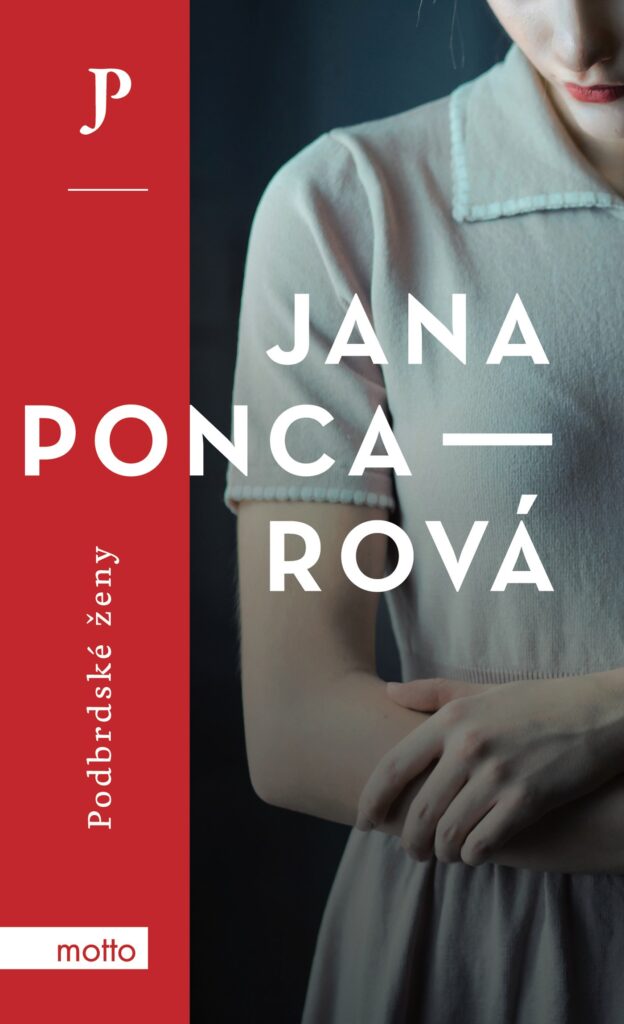
Deník Věrky Kohnové / The Diary of Věrka Kohnová
In January 1942, the Kohns boarded a transport at the Pilsen railway station and never returned. Other tenants moved into their apartment and their belongings were gradually lost. Everything disappeared, except for the diary that the twelve-year-old Věrka Kohnová hid with her mother’s friend. What family secret led the writer Jana Poncarová to it years later? This unique publication was written in collaboration with the historian Jiří Sankot and it reveals the moving story of a Jewish girl whose life was violently ended by the World War II.
The authentic diary entries of Věrka Kohnová are complemented by the narration about her life in pre-war Pilsen, based on gathered archive materials about her family and friends. The atmosphere of the late 1930s and the beginning of the World War II is illustrated by historical photos and newspaper articles.
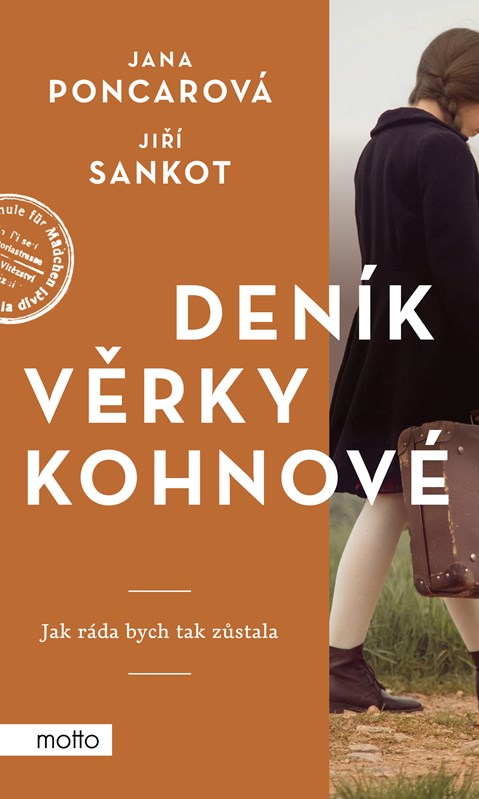
Vlastní pokoje / Rooms of One’s Own
The book Rooms of One’s Own by Jana Poncarová offers twelve interviews with Czech female writers, representing different generations, literary genres, approaches to writing, streams of views and strategies of survival in (not only) the art industry. Kateřina Tučková, Alžběta Stančáková, Anna Bolavá, Kateřina Dubská, Lenka Pastorčáková, Daňa Horáková, Lucie Faulerová, Petra Soukupová, Michaela Klevisová, Simona Martínková Racková, Martina Heš and Karin Lednická talk about their experience of being a writer and the conditions in which they work. The book is framed by two essays – the author of the publication Jana Poncarová and the publisher and non-fiction author Barbora Baronová, which, in addition to their own experience, also map the reality of the Czech literary practices. The publication Rooms of One’s Own is also illustrated by stylized portraits of the Czech women writers, set against the models of rooms from the collections of the Academy of Arts and Design in Prague, taken by the photographer Dita Pepe.
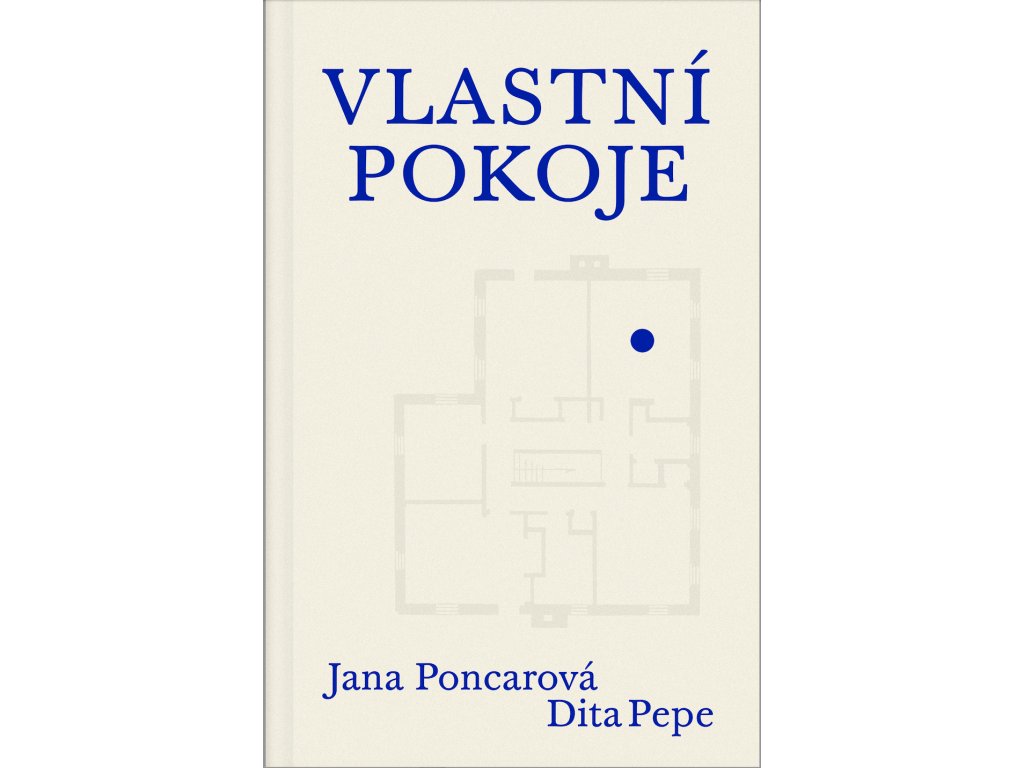
Děvčata první republiky / The Girls of the First Czechoslovak Republic
The book The Girls of the First Czechoslovak Republic offers the life stories of eight women who were born and raised during the presidency of T. G. Masaryk and then lived through the turbulent 20th century – as well as part of the 21st – with all its twists and turns. Against the backdrop of the great historical events, the protagonists of the book have studied, worked, married, experienced the injustices of the communist regime and the violence of marriage, they had to deal with the loss of their children and loved ones and make hard life decisions. The stories of the girls of the First Czechoslovak Republic were captured for the book by the writer Jana Poncarová and the photographer Dita Pepe, who has also worked with the period photo archives of the protagonists. The book is released in a small number of copies only.
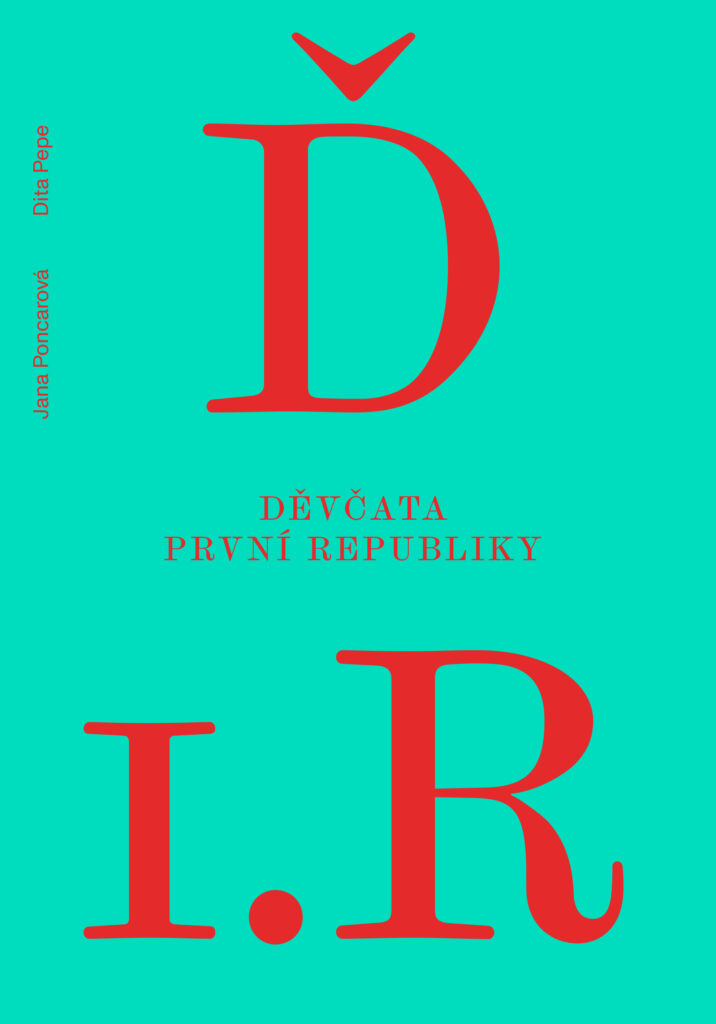
The documentary publication Girls of the First Czechoslovak Republic brings together eight stories of women born in the 1920s. Published in 2020.